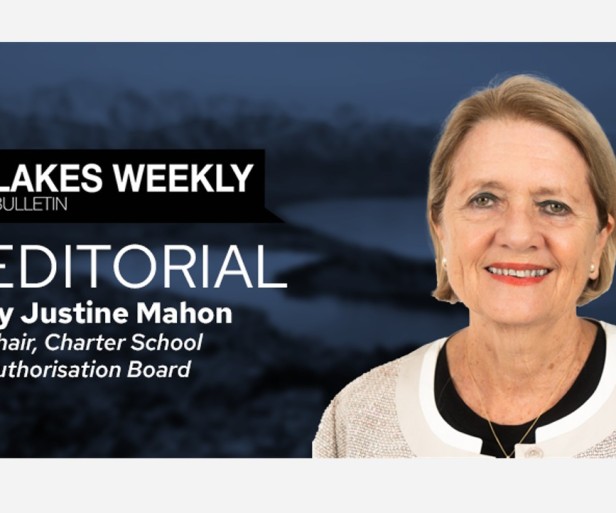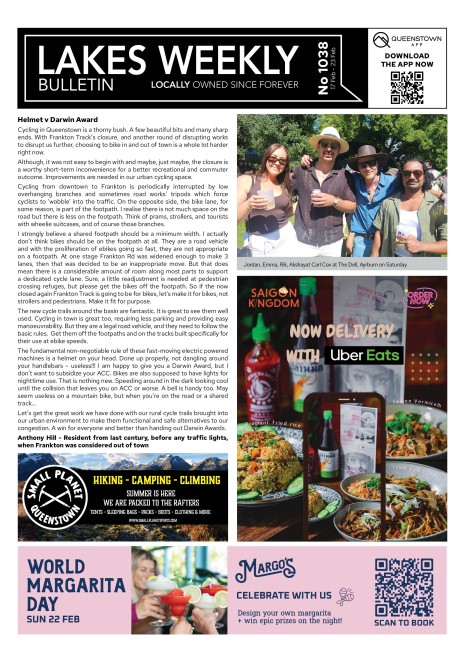Opinion: Looking overseas could help pay for policies

Mark Harris, managing director of Queenstown-based New Zealand Sotheby’s International Realty, with his post-budget opinion on the property sector
If I was to sum up the Budget in terms of its impact on the property sector, it would probably be ‘nothing to see here’. There was very little in the announcement that hadn’t already been introduced, whether the interest deductibility and Brightline test changes announced during the election campaign, or the removal of the first home loan grant scheme in favour of building more social housing.
It’s what wasn’t there that was more interesting to us. There were many murmurings that the foreign buyer tax first proposed by National could be back on the agenda, albeit with an increase to the threshold from the initial $2 million, but unfortunately that wasn’t the case.
With some of the Government’s promises yet to be met, we believe they are leaving money on the table that could pay for some of them.
We would say that, you might say. We obviously stand to benefit from what could be significant sales to wealthy foreigners. But I live in Queenstown and I can see how this region has benefitted from those with the energy and resources to get things done. We might not have had the wonderful Highland Park Motorsports facility developed by Tony Quinn, or we might not have the highly sustainable Headwaters Ecolodge and Campground at Glenorchy without Paul and Debbie Brainerd; and, while he’s a local, we wouldn’t have the mountain biking facilities or, potentially, a gondola to the top of Coronet Peak without the backing of Rod Drury.
Just as there are good carbon offsetting programmes in New Zealand that help to create native forests that locals can actually use, there could also be ways to ensure the stamp duty from these purchases helps the region where these buyers choose to live. Part of the revenue could potentially be put towards, for example, funding social housing in the southern lakes, which we are in desperate need of. In other markets, smart incentives exist for developers who commit to adding a certain amount of social housing to their buildings. Why could we not create a similar win-win for foreign buyers and the country as a whole?
The restrictions were originally put in place to limit price growth, but it’s clear with the increases over the past few years that it has had little impact. National’s plan was for foreign buyers to pay a 15% tax on the purchase price for any home over $2 million, raising an estimated $740 million. There were over 5000 sales at that level last year, while there were around 800 sales over $5 million in New Zealand. We don’t believe there is any way sales at this level would affect property prices at the lower end (where foreigners can affect first home prices - and particularly rents - is through migration and New Zealand had record net migration last year).
Critics may say that there are already ways for foreigners to get into New Zealand and buy property, but it is insanely difficult and you need a laser-like focus to gain residency. The people who want to contribute often struggle to stay for the required number of days per year. Last year, we had several high net worth clients decide against investing when they discovered they had to become tax-paying New Zealand residents to be able to buy a home here so that they could then also invest in the local region economically.
Australia is taking many of the people who aren’t able to tick our overly restrictive boxes, but good strategy is often about playing the long game. This budget was pragmatic and all about sticking to the script and honouring promises. While we were disappointed not to see the foreign buyer tax, we were not surprised, but we are confident it will happen eventually with some changes to the original plan, and we expect that our phones will run hot when it does. We still have very high and increasing amounts of overseas traffic to our website and we hear from foreign buyers every week who want to invest in this country, so New Zealand remains a very appealing place in the international consciousness.
At this stage, this is all theoretical, because the policy has not been resuscitated. If the threshold does get lifted, it will also be relevant for just a few sellers at the very high end. So, more broadly, will the budget have much of an impact on the property sector? Treasury said the housing market was “sluggish”, with residential investment down 11% since the pandemic. As always, the average doesn’t do justice to the regional differences or sentiment at different price levels and we are still seeing many pockets of positivity amid the gloom.
At the very high end, there is still plenty of demand, but not much supply. At the lower end, there is some fear of missing out at the moment because people think now is a good time to get a good deal. But it’s the squeezed middle – the biggest beneficiaries of the Budget – where things are slowest.
Economists often talk about the trickledown effect, but there is also the trickle up effect. Taking $145 million out of the first home loan grant scheme and putting it into social housing means there may be fewer first home buyers in the market and, so, lower prices for sellers due to lack of competition. But the changes to interest deductibility rules and more ‘user friendly’ tenancy laws should make property more appealing for investors, so that could possibly balance out.
Things feel finely balanced across the board at the moment. The government is paying for savings and funding policies by cutting existing costs, borrowing and trying to add revenue. There is new revenue available to pay for important things like cancer drugs if we decide to take it. But it’s not just about the money. There are many other benefits these buyers will bring to their new communities if we make it easier for them to buy homes here.
It may have been a ‘nothing to see here’ budget in terms of property, but the foreign buyer tax should be seen as a ‘nothing to be afraid of’ policy.









